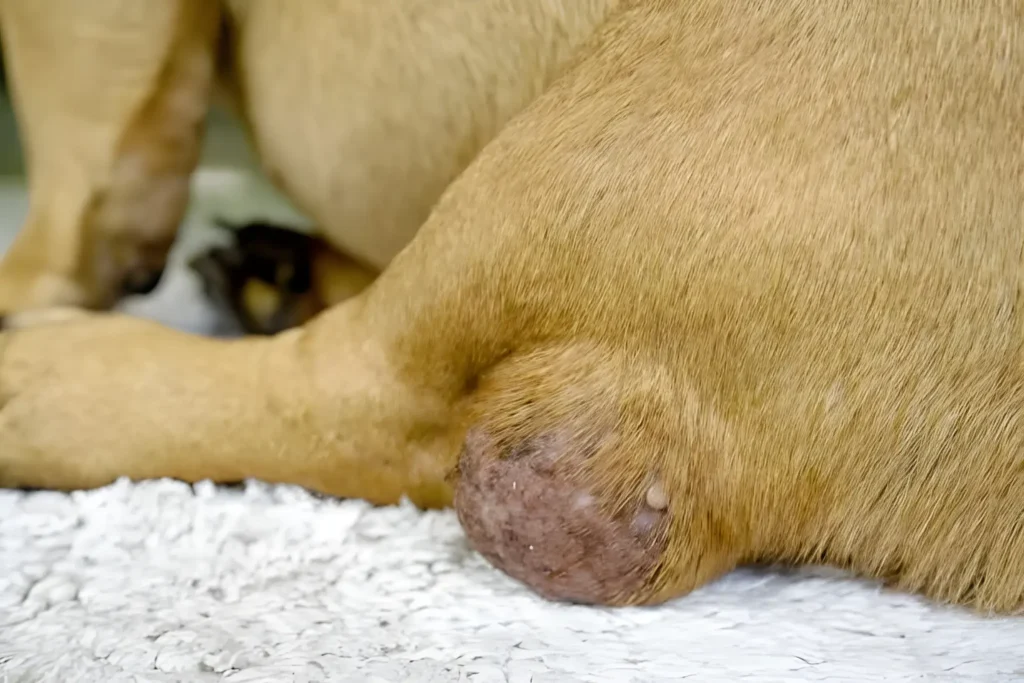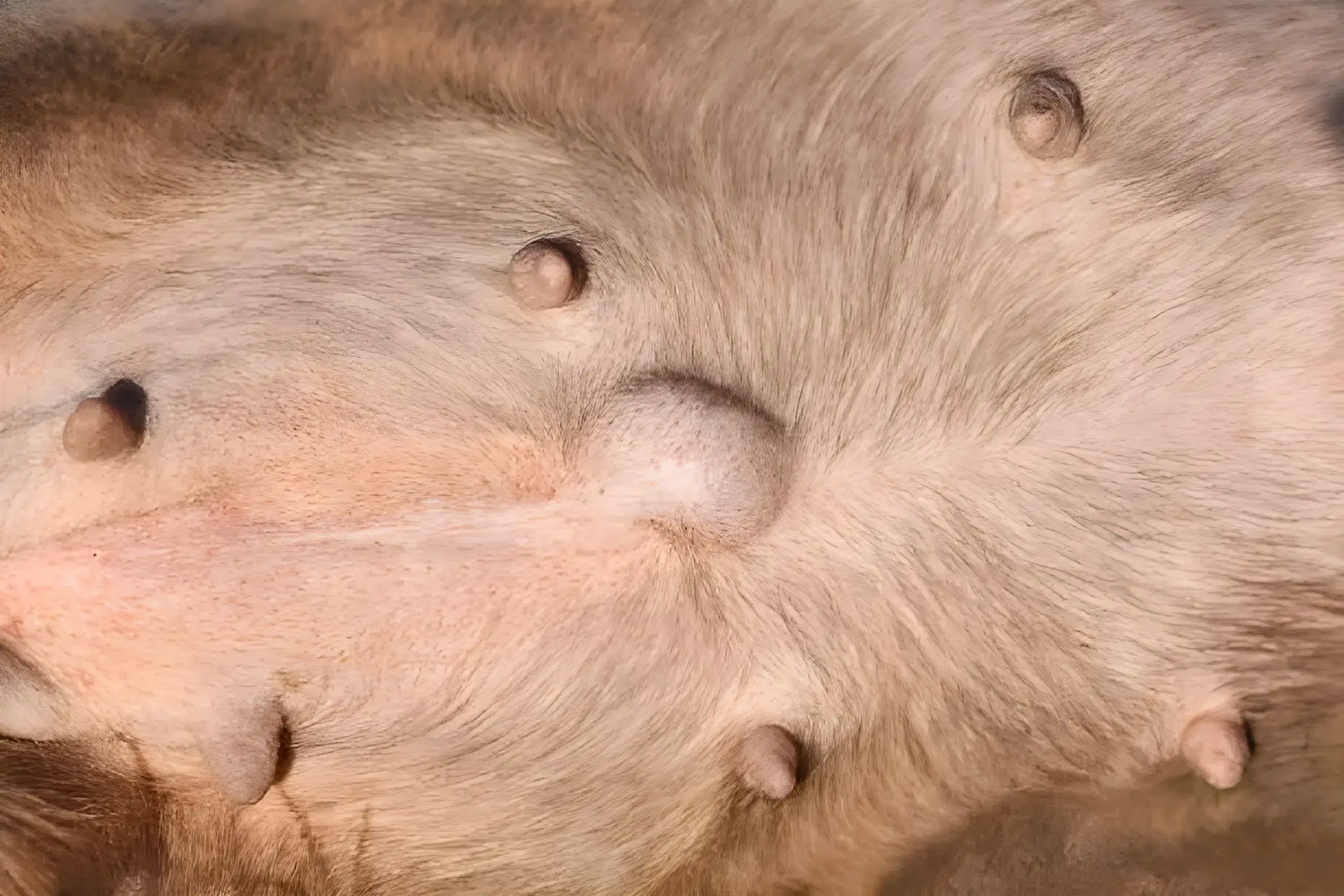Discovering a soft lump on your dog’s abdomen can be alarming. While many of these lumps are benign, it’s crucial to seek veterinary evaluation for diagnosis and appropriate treatment recommendations. This article explores potential causes, diagnostic procedures, and management strategies for soft lumps in dogs.
Potential Causes of Soft Abdominal Lumps
Lipomas: The most prevalent type of soft lump in dogs, lipomas are benign accumulations of fat cells. Typically found in middle-aged or senior dogs, they feel soft, movable, and are generally harmless.
Hernias: Occur when internal organs or tissues protrude through weakened abdominal muscles. Hernias can vary in severity, with umbilical hernias (common in puppies) often resolving on their own and other types potentially requiring surgical intervention.
Abscesses: Localized pockets of infection filled with pus, abscesses can develop quickly, feel warm, and may be painful for your dog. Prompt veterinary care is essential.
Tumors: Can be benign or malignant (cancerous). While some tumors may feel soft and movable, a definitive diagnosis is crucial for determining the appropriate treatment plan.
Veterinary Diagnosis
Comprehensive Evaluation: Your veterinarian will begin by meticulously examining the lump. They’ll note its size, location, how firm or soft it feels, and whether it causes your dog any discomfort. These initial observations provide valuable clues about the lump’s possible origin.
Aspiration for Analysis: In many cases, your vet might recommend fine needle aspiration (FNA) as the primary diagnostic test. During this procedure, a thin needle is used to withdraw a small sample of cells from the lump for microscopic examination.
Biopsy for Definitive Diagnosis: If the results of the FNA are inconclusive, a biopsy might be necessary. This involves surgically removing a small piece of tissue from the lump for thorough laboratory analysis.
Imaging for Deeper Insights: Diagnostic imaging techniques, such as X-rays or ultrasounds, may be used to create visual representations of internal structures. This can help your vet determine where the lump is situated, how large it is, and if it affects any surrounding tissues.
Treatment Options

The recommended course of treatment will be entirely dependent on the diagnosis your veterinarian makes:
Lipomas: These typically don’t require treatment unless they grow excessively large or start hindering your dog’s movement. Under those circumstances, your vet might suggest surgical removal.
Hernias: Surgery is often the best way to repair hernias, particularly if they’re uncomfortable for your dog or pose a risk of internal organ entrapment.
Abscesses: These infections are usually managed with antibiotic medications. In some cases, your veterinarian might also need to drain the abscess.
Tumors: The treatment approach for tumors depends on whether they’re benign (non-cancerous) or malignant (cancerous). Benign tumors may simply need regular monitoring, while others might warrant surgical removal. For malignant tumors, a combination of surgery, chemotherapy, radiation therapy, or other specialized treatments could be necessary.
Prevention Strategies
Although it’s impossible to completely eliminate the possibility of your dog developing lumps, taking proactive measures can help reduce the likelihood of some types:
Prioritize a Healthy Weight: Excess weight puts your dog at a higher risk for developing lipomas. Provide a well-balanced diet and ensure they get regular exercise to maintain an ideal weight.
Invest in Preventative Care: Schedule regular wellness examinations with your veterinarian. These checkups provide opportunities to spot any lumps or other potential health concerns early on, when they may be easier to manage.
Consider Spaying/Neutering: Having your dog spayed or neutered can decrease their risk for certain types of cancers as well as specific hernias. Discuss this option with your veterinarian.
Conclusion
Finding a soft lump on your dog’s stomach can be a source of concern. It’s vital to remember that while many lumps are harmless, seeking veterinary assessment is crucial for accurate diagnosis and timely treatment if needed.
I hope you find this article helpful and informative. If Yes’ feel free to share it with your friends!
Frequently Asked Question
My dog has a soft lump, should I be worried?
It’s always best to have any new lump evaluated by a veterinarian.
How quickly should I get my dog to the vet?
Unless the lump appears infected or painful, scheduling an appointment within a few days is generally appropriate.
Can soft lumps go away on their own?
Some small hernias and abscesses may resolve on their own, but professional diagnosis is still recommended.

